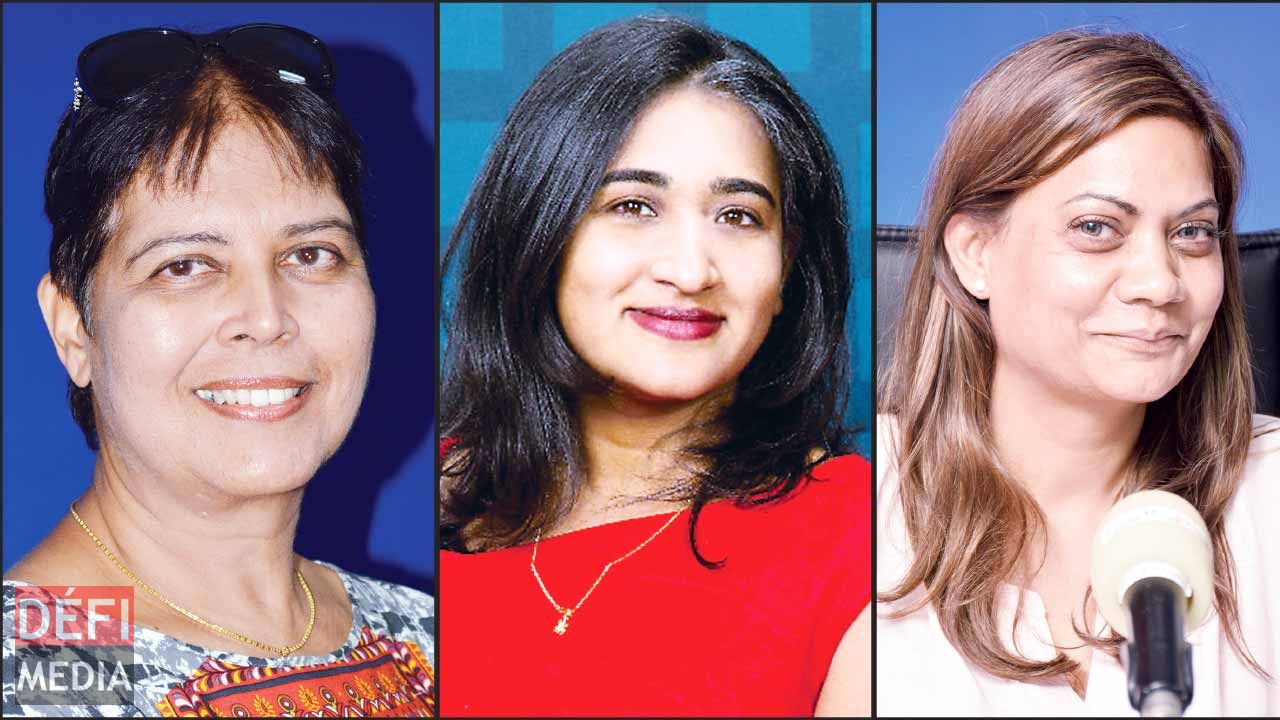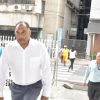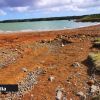
This Friday, Sheila Bunwaree, Roukaya Kasenally and Manisha Dookhony are launching a new Think Tank. Mauritius Society Renewal aims “to use the collective intelligence of Mauritian citizens, inclusive of the Diaspora to shape and map out a new vision for Mauritius.”
Publicité
What is the aim of launching Mauritius Society Renewal?
Sheila Bunwaree: Mauritius Society Renewal aims to use the collective intelligence of Mauritian citizens, inclusive of the Diaspora to shape and map out a new vision for Mauritius. There is so much, which has gone wrong lately that Mauritian citizenry needs a new course. Almost 50 years of independence and yet we have still not been able to establish a strong Mauritian identity, the country remains divided. There can be no renewal if the wounds of history are not healed, if wealth remains concentrated in the hands of a few, if the potential of the youth continues to remain untapped, and if opportunities continue to be restricted to the privileged few.
Our aim as a national Think Tank is to create a platform in which all stakeholders can work together for a more competitive economy, a meritocratic, a more just and inclusive society. The world has become a more complex and competitive place, full of uncertainties. The rise of populism, the ‘dehumanising’ polices put in place by some world leaders show how geopolitics is taking a new face with small countires such as Mauritius becoming even more vulnerable. The multiplicity of crises – food crisis, climate change crisis, financial crisis as well as the moral crisis make it imperative for us to rethink our development model. Without the latter, there can be no renewal. We cannot afford to carry on with business as usual and leave governance- that is the management of the affairs of the country, in the hands of a few only. Renewal is about getting the citizenry more engaged so that he or she asks the right questions and challenge the status quo. If we want a better future, there is no room for complacency and indifference.
Interrogations are certainly not enough but they are important to shake and get rid of the rot and build the foundations of a new beginning which is driven by an ethical, honest and competent leadership.
 How can we renew the Mauritian society?
How can we renew the Mauritian society?
Sheila Bunwaree: MSR positions itself as a network of networks- we are developing a multipronged strategy to work with the relevant actors for a drug free, illiteracy free, corruption free, greed free and poverty free society. Renewal demands first and foremost that the electoral system be revisited to make our democracy fairer and more inclusive. The ‘first past the post/winner takes it all system, does not have its place in modern Mauritius. It kills the very essence of democracy. A true democracy should have a diversity and plurality of voices.
Renewal demands that the Mauritian citizen understands the system, appreciates his or her rights and obligations and makes the right choices. Renewal requires that we speak to the truth and that we all play a role in reconciling the nation, that we stop thinking of our immediate vested interests and look at the larger picture. MSR will also push for greater political consciousness and literacy so that Mauritian citizenry can engage more effectively.
Of what must we get rid of?
Manisha Dookhony: As Sheila has just mentioned, we must first and foremost get rid of the ‘first past the post system’ as well as the dynastic politics that has got entrenched. The Mauritian society is embroiled in issues, which are becoming binding constraints to the prospects of the country and we need to tackle, get rid or contain these problems. Soon, it will be half a century of independence and yet we continue to be a country with stark dichotomies.
Mauritius is a rich country, with a middle income level status, but the level of poverty is alarmingly high and rising. A significant percentage of children still live in poverty and the level of household indebtedness exacerbates the problem.
We should also get rid of the malfunctioning of our institutions and archaic legislations which are no longer relevant. Mauritius is still grappling with a persistent mismatch between education and the labour market. The system produces a lot of waste. Drugs have invaded the lives of many families. We punish drug use such as cannabis very hard, but consumption of hard and synthetic drugs are plaguing our school. Corruption has become the order of the day, so much so that some people think it is ‘a new normal.’
These are some of the most blatant ills that we need to get rid of for us to be able to prosper in a sustainable manner over the next 50 years.
There is a big gap between academia and policymaking in Mauritius. Do you want to fill it through MSR?
Roukaya Kasenally: We would not say that there is too big a gap but prefer to approach it along the fact that academia does not sufficiently infuse the process of policy making. We all know that one of the main objectives of research is to generate data / information that can help in the formulation of policies that are relevant to the betterment of people’s livelihoods - be it related to poverty eradication, health reforms, educational progress, food security, climate change or for that matter the development of new pillars of the economy.
Therefore what is urgently needed are regular exchanges perhaps through the creation of working groups on key policy themes between academia, the private sector and the public sector to develop common proposals that are formulated and debated in an open, frank and professional manner which in turn can become part of national policies. What are we trying to point at is that we should move away from our siloed and straightjacketed way of doing things. In fact, in a number of countries, both developed and emerging ones, we find important policy think tanks working together with other stakeholders.
Concerning the role of MSR, we hope through its various projects and activities it will help towards producing evidence that can help shape policy. In addition, to shaping policies for a renewed Mauritius, MSR will also advocate and lobby for the kind of changes that are necessary for societal renewal. What MSR wants to do is to ensure that policy making is not done in a partisan manner and that there is sufficient consensus around it so that it is durable. Mauritius will only lose if each change of government thorws away the policy of its predecessor even if the policy in place was working in the best interest of the nation.
 Will it be a scholarly approach to public policy issues?
Will it be a scholarly approach to public policy issues?
Manisha Dookhony: More than a scholarly approach, we believe in a practical and holistic approach to tackling policy issues. We can publish reports and scholarly papers, but that is not our aim. For us, the solutions are more important and we need to develop implementable proposals. MSR is banking on a bottom up, citizens driven approach for effective policy making.
We- Sheila, Roukaya and myself -the founders of MSR have a very diverse experience. Sheila is known to be an activist scholar with lots of experience in the field, particulalry as regards poverty eradication and broader development issues, Roukaya is not only a scholar but has been working for the Africa Media Initiative in Kenya and I myself am a graduate from Harvard, an economist who works primarily onleadership and private sector development on the Afrcan continent. But MSR is not only about us bringing our inherent diversity and talent to thought and action but rather pooling the knowhow and expertise of others in the best interest of the nation. Our work in collaboration with other networks and as Sheila mentioned earlier with the Diaspora, will be driven by an action oriented approach, constructive criticisms and innovative development proposals.
Will MSR publish regularly papers of its brainwork?
Roukaya Kasenally: Generating knowledge that is useful and meaningful to all is key to an inclusive and egalitarian society. MSR’s philosophy driven by ethics, is to produce or support the production of data that can shed light on some of the important problems, challenges as well as opportunities facing our society. To do so, MSR will run specific projects that will equip citizens across all segments of our society to be better prepared be in terms of political literacy, leadership training, technological adaptability, among other things. At MSR, we want our work to be practical and hands on – we do not want to cultivate lofty and high brow ideas that will not really serve anyone! However, whenever the need arises to produce a paper/report on a key topic/issue, we will do so in consultation with our other partners.
All think tanks have one thing in common - influence public opinion and policy. What are the means that you will use?
 Roukaya Kasenally: We prefer to use shape instead of influence. It is believed that public opinion and policy are closely interlinked especially in democratic societies. Here again the term public opinion is quite loaded. What is public opinion? Who is part of it? How is it formed? We believe that public opinion is a collective force that gains both legitimacy and validity through the capacities and capabilities of the different individuals that constitute it.
Roukaya Kasenally: We prefer to use shape instead of influence. It is believed that public opinion and policy are closely interlinked especially in democratic societies. Here again the term public opinion is quite loaded. What is public opinion? Who is part of it? How is it formed? We believe that public opinion is a collective force that gains both legitimacy and validity through the capacities and capabilities of the different individuals that constitute it.
MSR together with other networks and as mentioned before, with the Diaspora, will rely on the use of technology and innovation to push its agenda for transformation. By engaging the average Mauritian citizen in key debates and action relevant to their lives, we hope to promote a more informed and engaged citizenry. Decentralisation, i.e taking the debate to the citizen rather than the citizen to the debate would also be part of our modus operandi. We will be reaching out to all stakeholders- the youth of the country is craving for a new kind of leadership-one which listens to their needs and aspirations and if MSR can contribute to creating a new breed of leaders, all the better.
Is there a risk that some people use MSR as a training ground for embarking in politics?
Sheila Bunwaree: It is not a risk, it is a certainty and that’s all very good. MSR will then have the merit of having contributed to the new kind of leadership that Roukaya refers to- one which understands where the real ‘enjeux’ lie, one which will be infused by a new set of values informed and driven by integrity and ethics since the latter two form the essence of MSR’s functioning.

Notre service WhatsApp. Vous êtes témoins d`un événement d`actualité ou d`une scène insolite? Envoyez-nous vos photos ou vidéos sur le 5 259 82 00 !
















![[Info Soirée ] : « Nu pe anvi konn la verite »](https://defimedia.info/sites/default/files/styles/square_thumbnail/public/thumbnail040425.jpg?itok=HyUaetyX)





